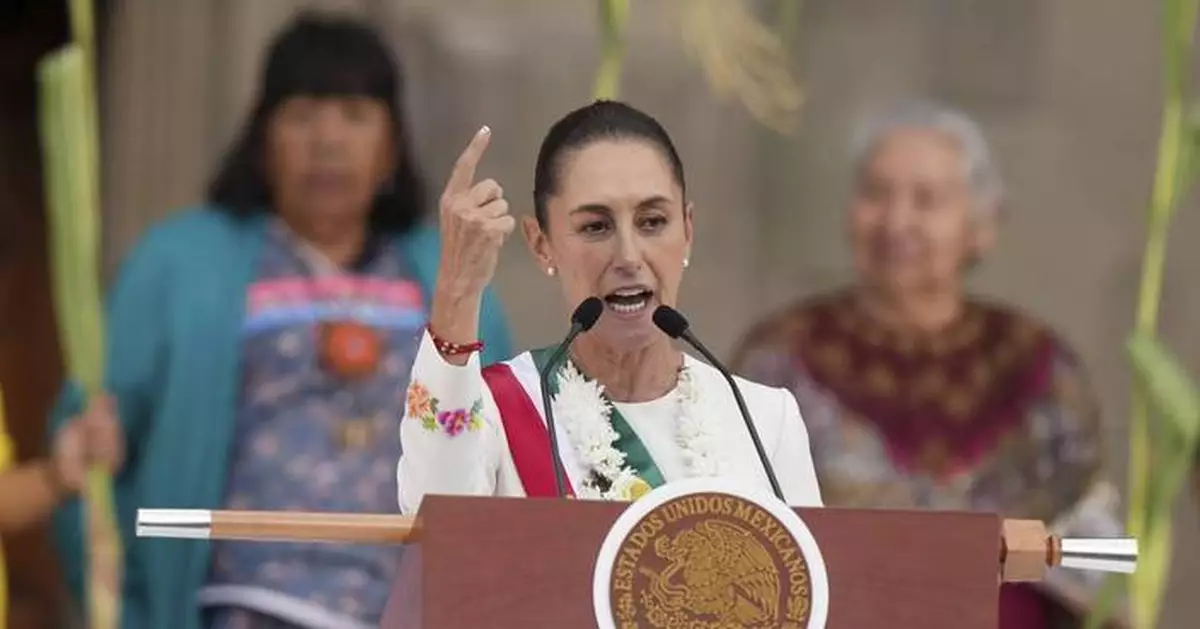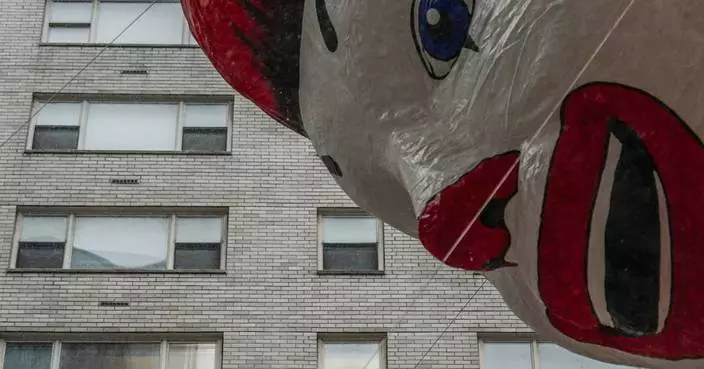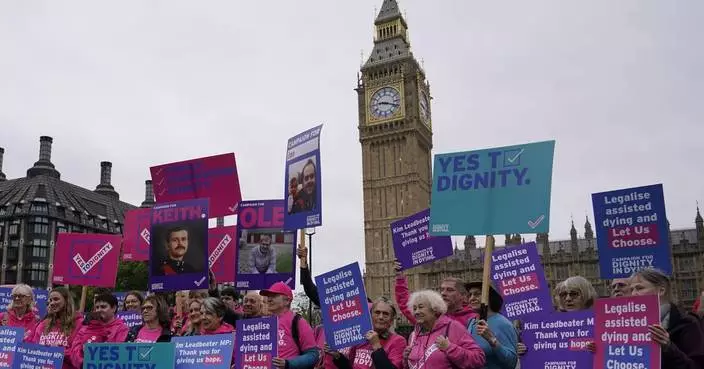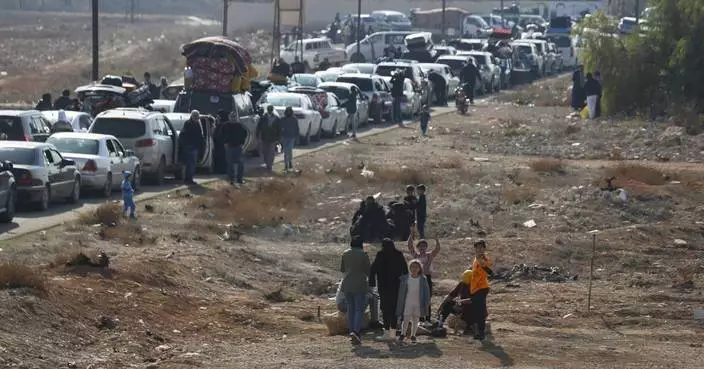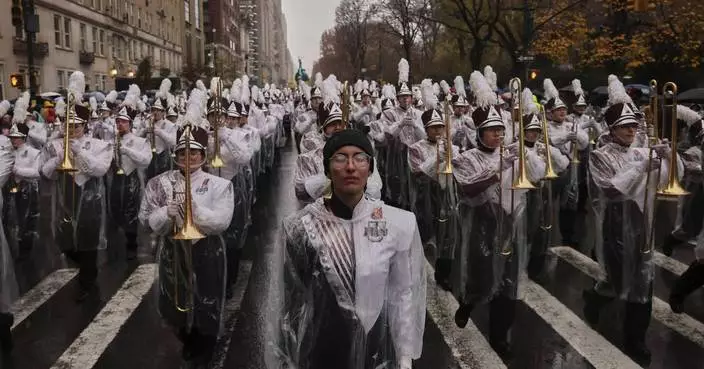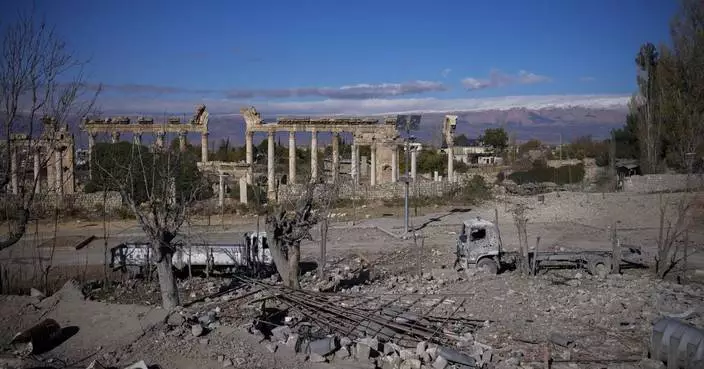MEXICO CITY (AP) — Mexican President Claudia Sheinbaum said Thursday she is confident that a tariff war with the United States can be averted.
But her statement — the day after she held a phone call with U.S. President-elect Donald Trump — did not make clear who had offered what.
“There will be no potential tariff war,” Sheinbaum said flatly when asked about the issue at her daily morning news briefing.
On Wednesday, Trump wrote that Sheinbaum had agreed to stop unauthorized migration across the border into the United States. She wrote on her social media accounts the same day that “migrants and caravans are taken care of before they reach the border.”
But whether that constituted a promise, a pledge or a simple statement of reality remains unclear. In recent years, migrants who have been unable to obtain permission to cross Mexico have joined together in caravans to walk or hitchhike north toward the U.S. border, seeking safety in numbers.
In fact, apart from the first caravans in 2018 and 2019 — which were provided buses to ride part of the way north — no caravan has ever reached the border walking or hitchhiking in any cohesive way.
For years, migrant caravans have often been blocked, harassed or prevented from hitching rides by Mexican police and migration agents. They have also frequently been rounded up or returned to areas near the Guatemalan border. So, Sheinbaum's statement appears to reflect a reality that has been true for some time.
U.S. President Joe Biden on Thursday said he hoped Trump would rethink his plan to impose tariffs on Mexico and Canada, saying it could “screw up” relationships with close allies.
“I hope he rethinks it. I think it’s a counterproductive thing to do,” he told reporters in Nantucket, Massachusetts.
Trump had earlier threatened to impose 25% tariffs on imports from Mexico and Canada until those countries satisfactorily stop illegal immigration and the flow of illegal drugs such as fentanyl into the United States. He also said Chinese imports would face additional tariffs of 10% until Beijing cracks down on the production of materials used in making fentanyl.
Despite Sheinbaum's confidence — she described the phone conversation with Trump as “excellent" — many Mexicans worry that U.S. tariffs could affect a wide range of iconic Mexican products and threaten entire regional economies.
In western Mexico, no crop supplies an income for so many small growers as avocados, and Mexico is the main supplier of the fruit for the U.S. market. But avocado growers, pickers and packers worry that U.S. consumers, faced with 25% higher prices, may just skip the guacamole.
And earlier this week, Sheinbaum said Mexico was preparing a list of retaliatory tariffs if Trump went ahead with his plans for import duties.
If Mexico, Canada and China faced the additional tariffs proposed by Trump on all goods imported to the United States, that could be roughly equal to $266 billion in tax collections, a number that does not assume any disruptions in trade or retaliatory moves by other countries.
The cost of those taxes would likely be borne by U.S. families, importers and domestic and foreign companies in the form of higher prices or lower profits.
Follow AP’s coverage of Latin America and the Caribbean at https://apnews.com/hub/latin-america
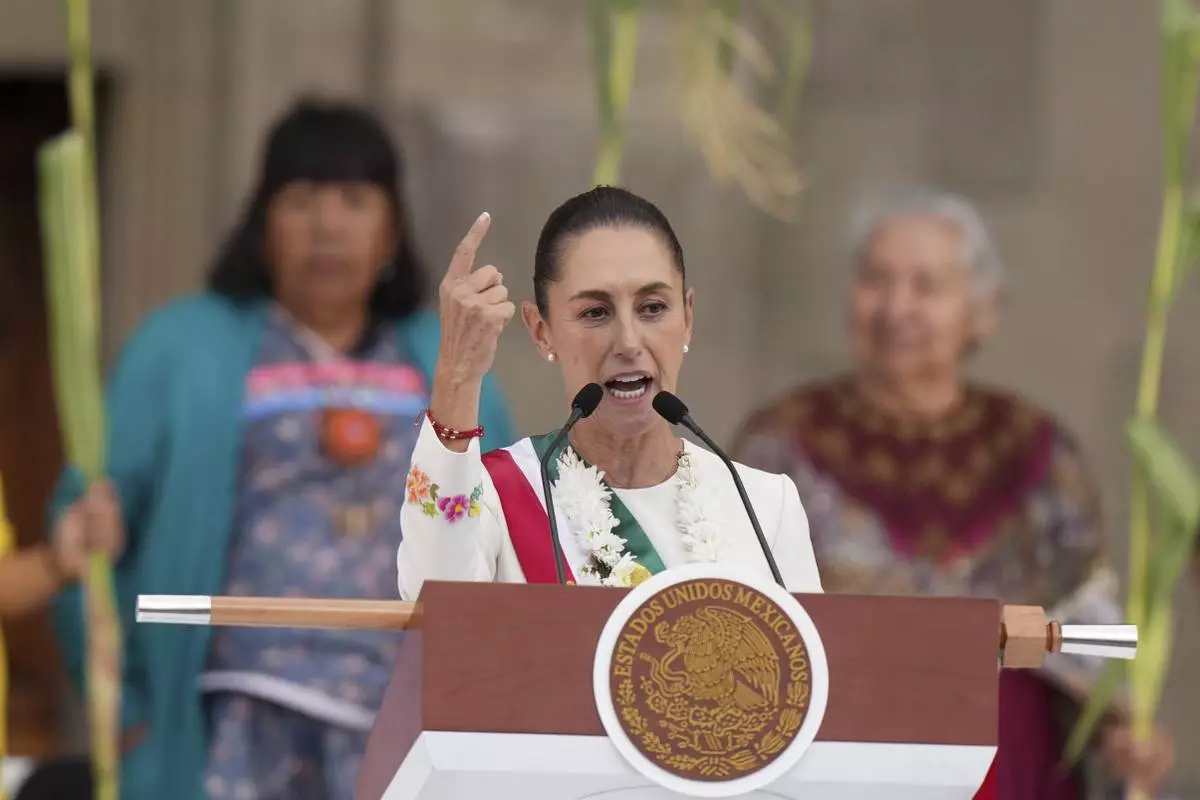
FILE - Newly-sworn in President Claudia Sheinbaum addresses supporters in the Zócalo, Mexico City's main square, on Oct. 1, 2024. (AP Photo/Fernando Llano, File)
TBILISI, Georgia (AP) — Georgia is suspending talks on its bid to join the European Union for four years, its prime minister said Thursday, in view of what he described as “blackmail and manipulation” from some of the bloc's politicians, an announcement that outraged the opposition and triggered a new wave of protests.
The statement by Irakli Kobakhidze came hours after he was reappointed to the job by members of the governing Georgian Dream party after its disputed victory in last month’s parliamentary election that has sparked massive demonstrations and led to an opposition boycott of parliament.
The Oct. 26 election was widely seen as a referendum on the country’s aspirations to join the European Union. The opposition said the vote was rigged under the influence of Russia seeking to keep Georgia in its orbit, and declared a boycott of parliament.
European election observers said the balloting took place in a “divisive” atmosphere marked by instances of bribery, double voting and physical violence.
The EU granted Georgia candidate status in December 2023 on condition that the country meets its recommendations but put its accession on hold and cut financial support earlier this year after the passage of a “foreign influence” law widely seen as a blow to democratic freedoms.
In Thursday’s statement, Kobakhidze said that while the country will pursue its bid to join the EU, “it will not put the issue of opening negotiations with the European Union on the agenda until the end of 2028.”
“Additionally, we are rejecting any budgetary grants from the European Union until the end of 2028,” he added.
Hundreds of protesters poured into the streets following Kobakhidze's announcement, blocking a central avenue in Tbilisi and staging rallies in other cities.
Earlier Thursday, the European Parliament adopted a resolution that condemned last month’s Georgian parliamentary vote as neither free nor fair, representing yet another manifestation of the continued democratic backsliding “for which the ruling Georgian Dream party is fully responsible.”
EU lawmakers urged a rerun of the parliamentary vote within a year under thorough international supervision and by an independent election administration. They also called on the EU to impose sanctions and limit formal contacts with the Georgian government.
The Georgian prime minister fired back, denouncing what he described as a “cascade of insults” from the EU politicians and declaring that “the ill-wishers of our country have turned the European Parliament into a blunt weapon of blackmail against Georgia, which is a great disgrace for the European Union.”
“We will continue on our path toward the European Union; however, we will not allow anyone to keep us in a constant state of blackmail and manipulation, which is utterly disrespectful to our country and society,” Kobakhidze said. “We must clearly show certain European politicians and bureaucrats, who are completely devoid of European values, that they must speak to Georgia with dignity, not through blackmail and insults.”
Critics have accused Georgian Dream — established by Bidzina Ivanishvili, a shadowy billionaire who made his fortune in Russia — of becoming increasingly authoritarian and tilted toward Moscow. The party recently pushed through laws similar to those used by the Kremlin to crack down on freedom of speech and LGBTQ+ rights.
Speaking in parliament earlier tin the day, Kobakhidze described last month’s parliamentary vote as “also a referendum between immoral propaganda and traditional values, and our society chose traditional values.”
The EU suspended Georgia’s membership application process indefinitely in June after parliament passed a law requiring organizations that receive more than 20% of their funding from abroad to register as “pursuing the interest of a foreign power,” similar to a Russian law used to discredit organizations critical of the government.
President Salome Zourabichvili, whose six-year term expires next month, has rejected the official results and refused to recognize the parliament’s legitimacy. She called a meeting with EU ambassadors after Kobakhidze's announcement.
Zourabichvili was elected by popular vote, but Georgia has approved constitutional changes that abolished the direct election of the president and replaced it with a vote by a 300-seat electoral college consisting of members of parliament, municipal councils and regional legislatures.
On Wednesday, the ruling party nominated Mikheil Kavelashvili, a 53-year-old former national team and Premier League player, for the mostly ceremonial presidential post. He is all but certain to win the Dec. 14 vote by the electoral college controlled by the ruling party.
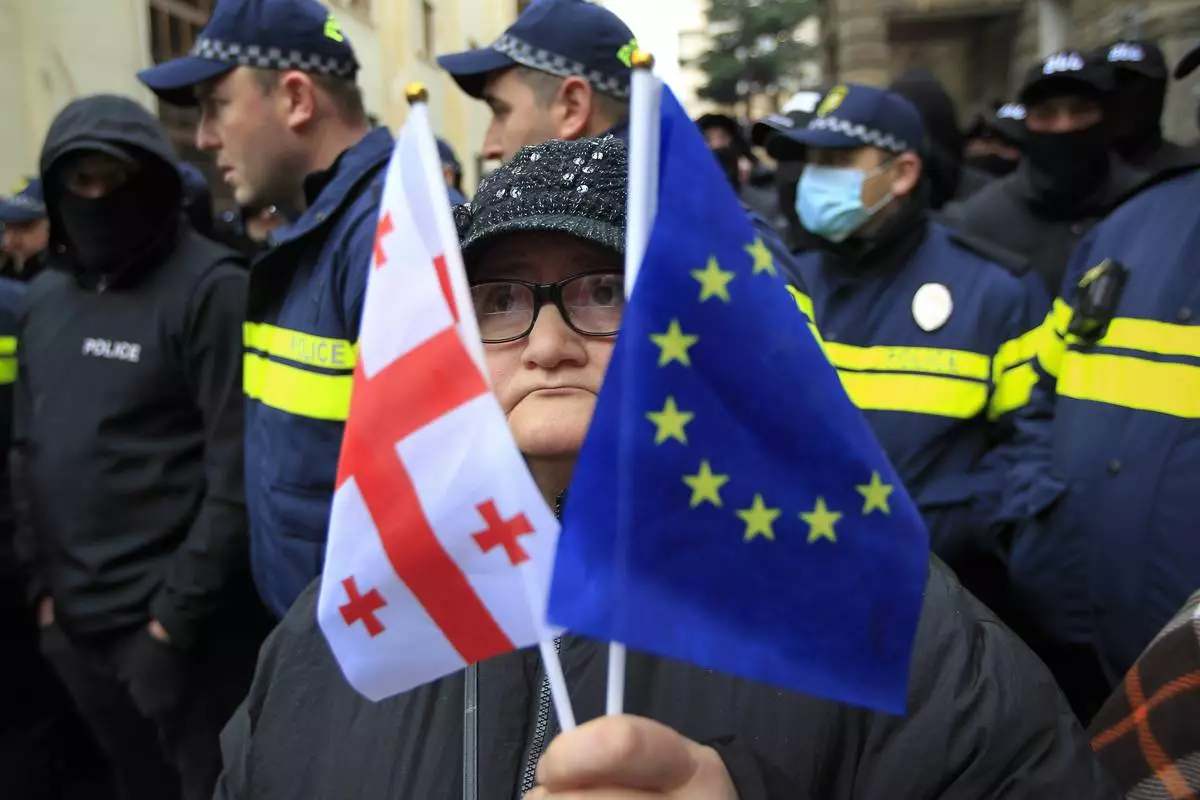
A woman with a EU and a Georgian national flags stands in front of police blocking a street during a rally to demand new parliamentary elections in the country, near the Parliament's building in Tbilisi, Georgia, on Monday, Nov. 25, 2024. (AP Photo/Shakh Aivazov)
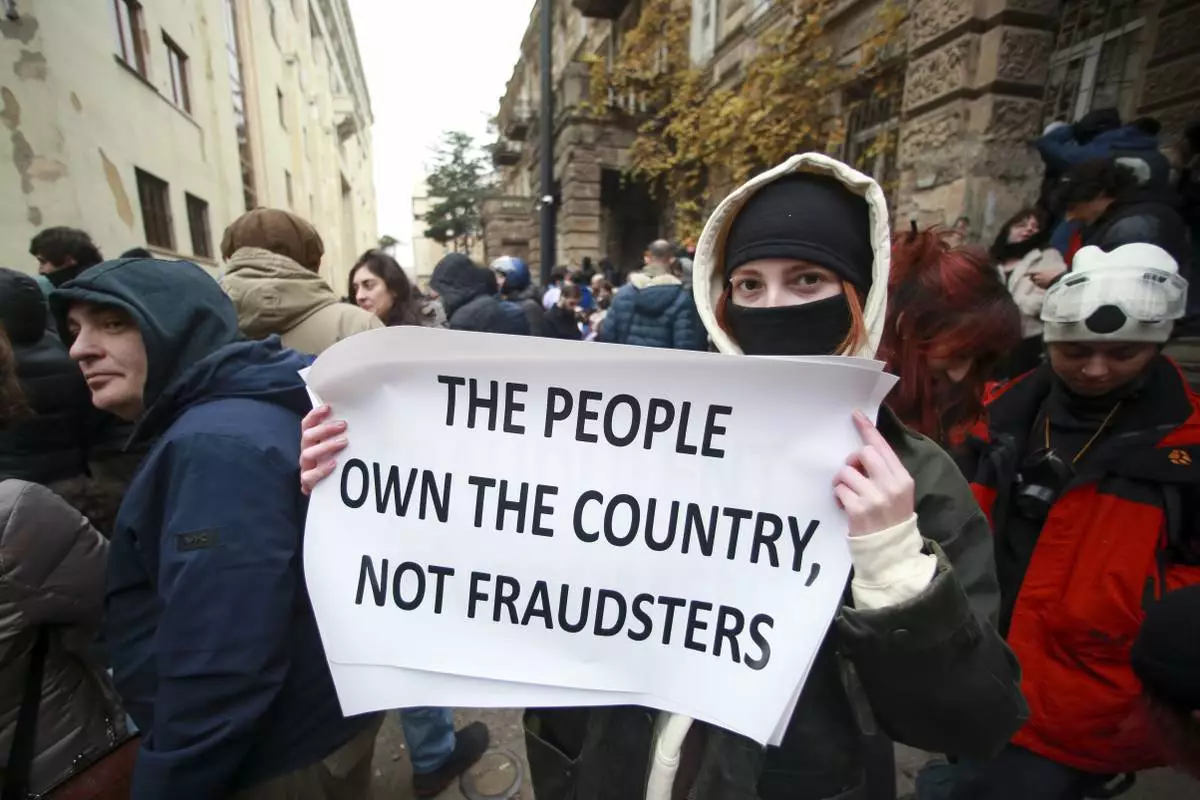
A protester holds a poster as they gather in a street during a rally to demand new parliamentary elections in the country, near the Parliament's building in Tbilisi, Georgia, on Monday, Nov. 25, 2024. (AP Photo/Zurab Tsertsvadze)
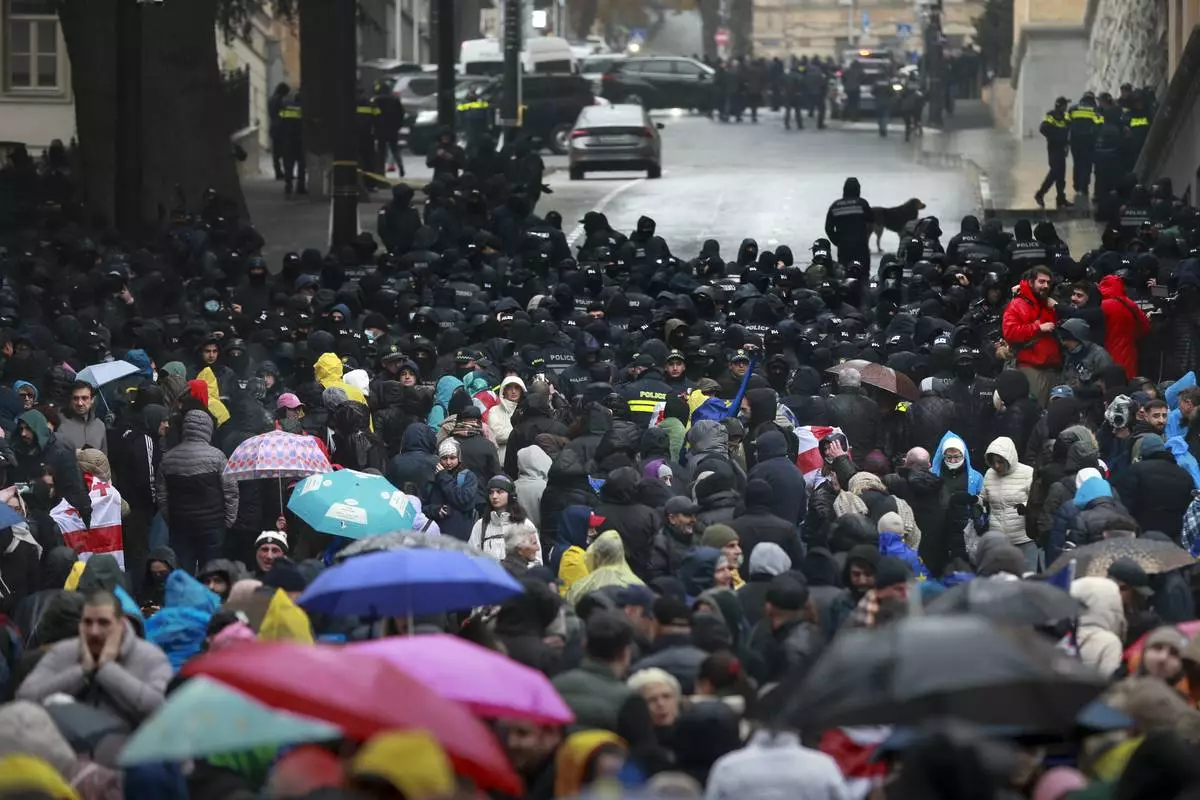
Police block protesters gathered in a street during a rally to demand new parliamentary elections in the country, near the Parliament's building in Tbilisi, Georgia, Monday, Nov. 25, 2024. (AP Photo/Zurab Tsertsvadze)
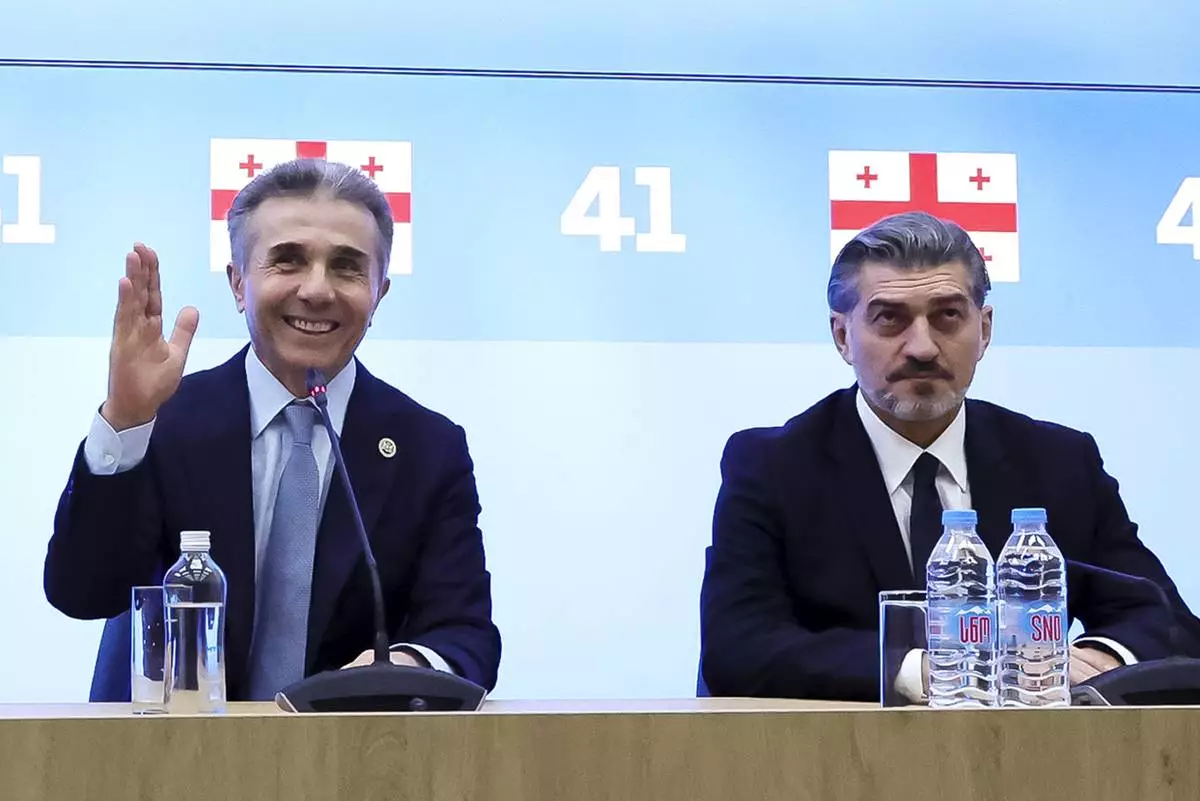
In this photo released by the Georgian Dream party, Bidzina Ivanishvili, leader of the created Georgian Dream party which he initiated, left, gestures as Mikheil Kavelashvili, who was nominated by the governing Georgian Dream party, sits next during a session to discussing Presidential candidate in Tbilisi, Georgia, Wednesday, Nov. 27, 2024. (Georgian Dream party via AP)
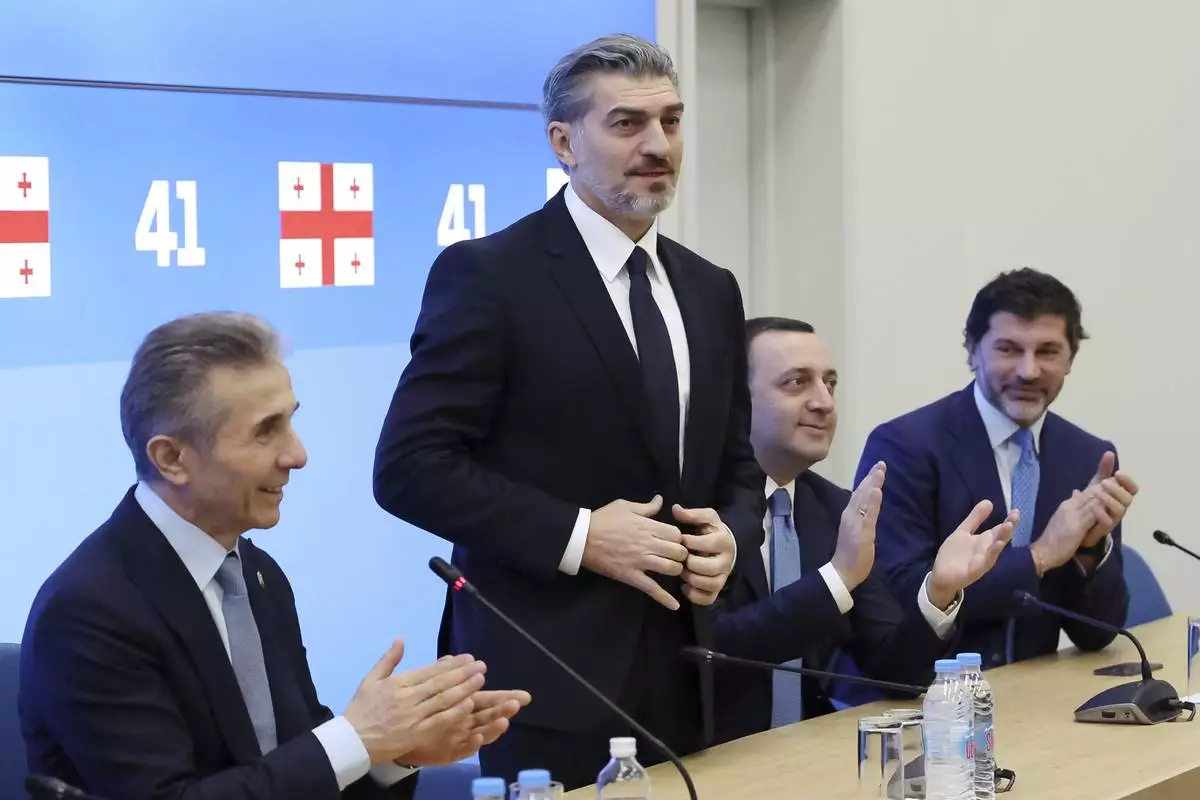
In this photo released by the Georgian Dream party, Bidzina Ivanishvili, leader of the created Georgian Dream party which he initiated, applauds to Mikheil Kavelashvili, who was nominated by the governing Georgian Dream party during a session to discussing Presidential candidate in Tbilisi, Georgia, Wednesday, Nov. 27, 2024. (Georgian Dream party via AP)
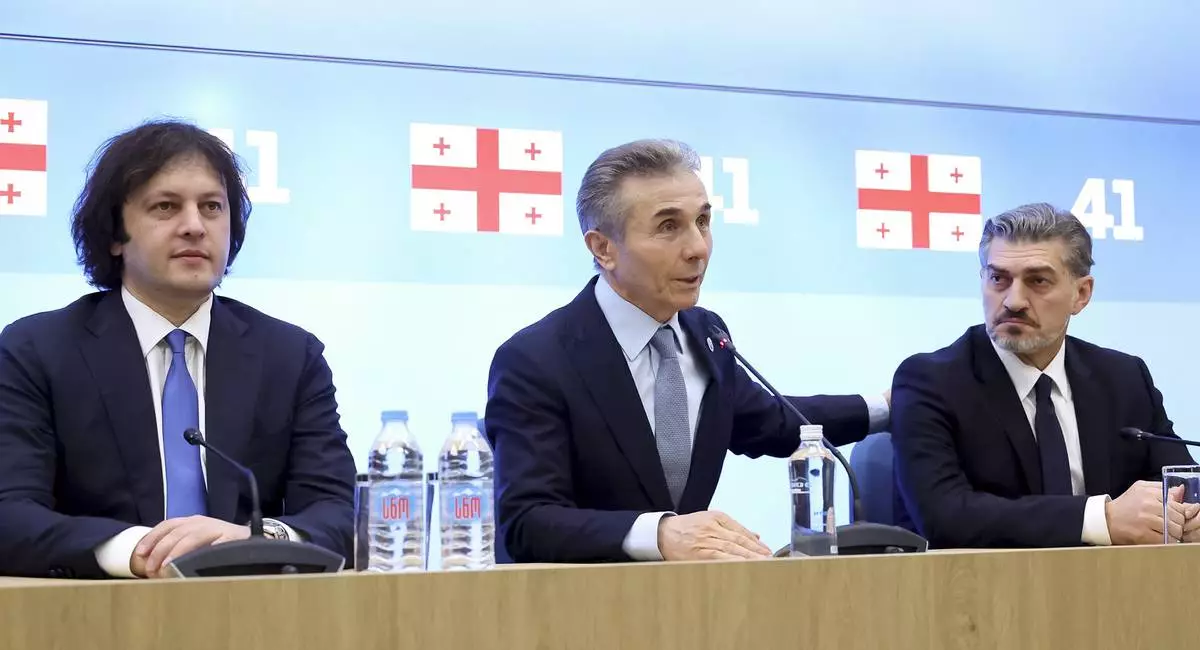
In this photo released by the Georgian Dream party, Georgian Prime Minister Irakli Kobakhidze, left, Bidzina Ivanishvili, leader of the created Georgian Dream party which he initiated, and Mikheil Kavelashvili, who was nominated by the governing Georgian Dream party as a candidate for the presidential election, speak to the media, in Tbilisi, Georgia, Wednesday, Nov. 27, 2024. (Georgian Dream party via AP)



